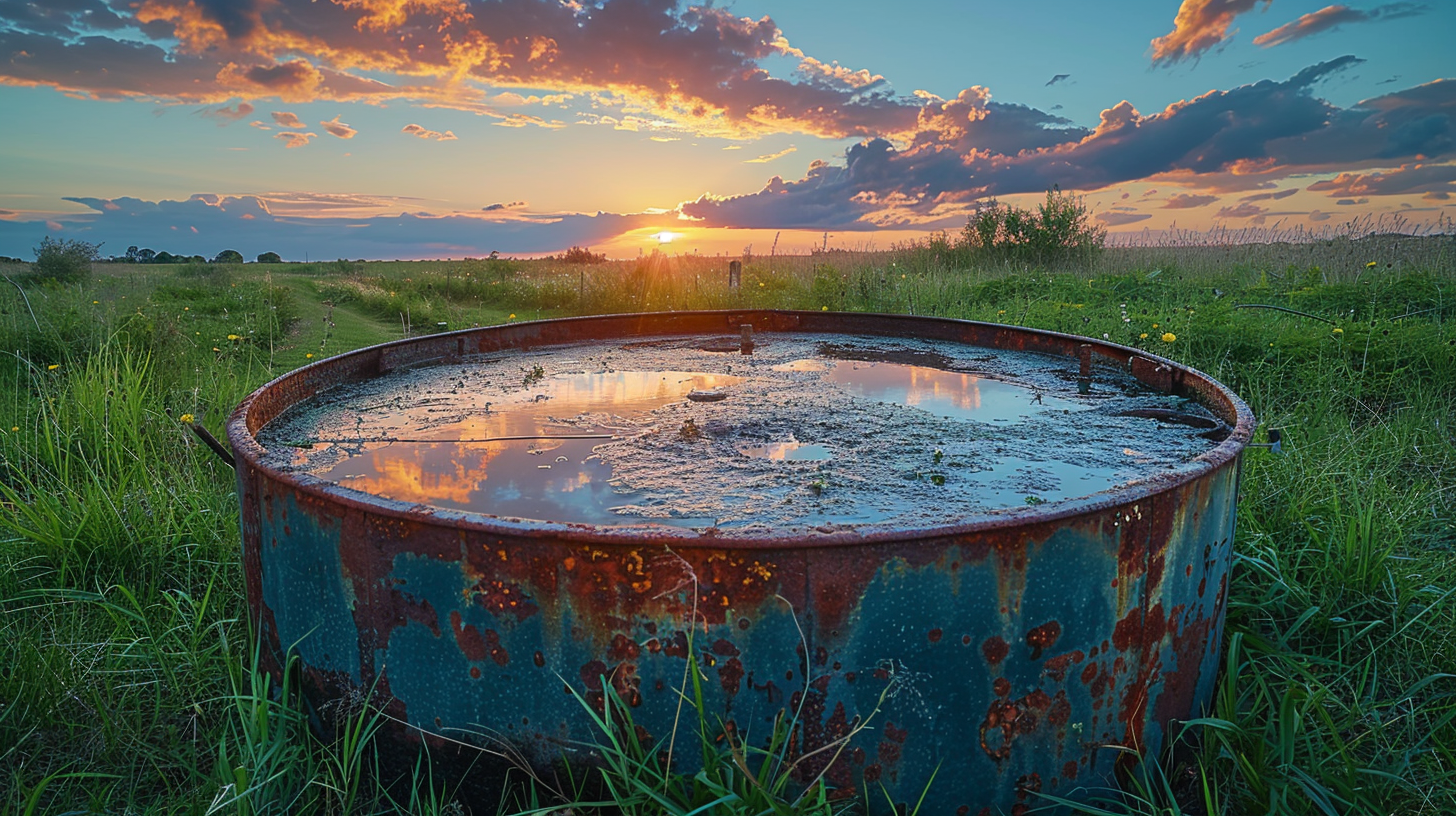Key Points
• Too Much Water: Flooding your septic system with more water than it can handle can cause it to fill up too fast. This can be from leaks, doing laundry often, or having many people in the house using lots of water.
• Poor Design or Installation: If a septic tank is too small for your home or isn’t put in right, it won’t have enough room or the right conditions to clean the wastewater well, and it will get full too soon.
• Blocked Drain Field: The drain field is key to getting rid of pollutants from the water leaving the septic tank. If it’s blocked by solid waste, roots, or packed soil, it won’t let water soak into the ground, leading to an overfull tank.
Contents
- 1 Key Points
- 2 Understanding Septic System Issues
- 3 What Influences Your Septic Tank’s Performance
- 4 Grasping Septic Tank Overflow Problems
- 5 Finding Out If Your Septic Tank Is Full
- 6 High Water Use and Its Effect on Septic Systems
- 7 Too-Small Septic Tank for Home Needs
- 8 Water Getting Into Septic Tanks from Outside
- 9 Common Problems with Septic Tanks
- 9.1 Non-Biodegradable Waste Can Clog Your System
- 9.2 How Household Cleaners Affect Your Septic Tank
- 9.3 Weather and Seasons Can Impact Your Septic System
- 9.4 Maintenance is Key for Your Septic Tank
- 9.5 What Happens if You Don’t Pump Your Septic Tank Regularly
- 9.6 Be Careful What Goes Down the Drain
- 9.7 Problems in the Drain Field
- 9.8 When Parts of Your Septic Tank Break
- 10 Expert Septic Tank Pumping and Cleaning
- 11 Finding and Fixing Leaks, Handling Water Seeping In
- 12 Boosting Your Septic Tank With Additives
- 13 Stop Septic Tank Overflow
- 14 Understanding Your Area’s Septic System Rules
- 15 Effects of Broken Septic Systems on the Environment
- 16 Understanding How Governments and Communities Manage Septic Systems
- 17 Dealing With a Full Septic Tank
- 18 Getting to Grips with Septic Tank Overflow
- 19 Glossary of Septic System Terminology
- 20 Resources for Septic System Maintenance and Repair
- 21 Checklists for Routine Septic System Evaluations
- 22 Understanding Septic Tank Overfilling
- 23 Issue Resolution Measures
- 24 More Info and Next Steps
Components and Functions of Septic Systems
The main parts of a septic system are the septic tank and the drainfield. Usually made from concrete, fiberglass, or polyethylene, the septic tank is meant to be leak-proof. Inside the tank, wastewater stays long enough so solids can sink down as sludge, and fats rise up as scum. The drainfield, also called the leach field, deals with the partially cleaned water by letting it flow into the soil where tiny organisms in the earth finish cleaning it.
Why Keeping Septic Systems Working Well Matters
Maintaining your septic system isn’t just good for making it last longer but also keeps communities healthy and protects nature. You should pump out your tank every three to five years to clear out sludge and scum build-ups that could make the septic system overflow or break down. Also, using water wisely and getting rid of waste correctly keeps your system running smoothly.
Understanding Septic System Issues
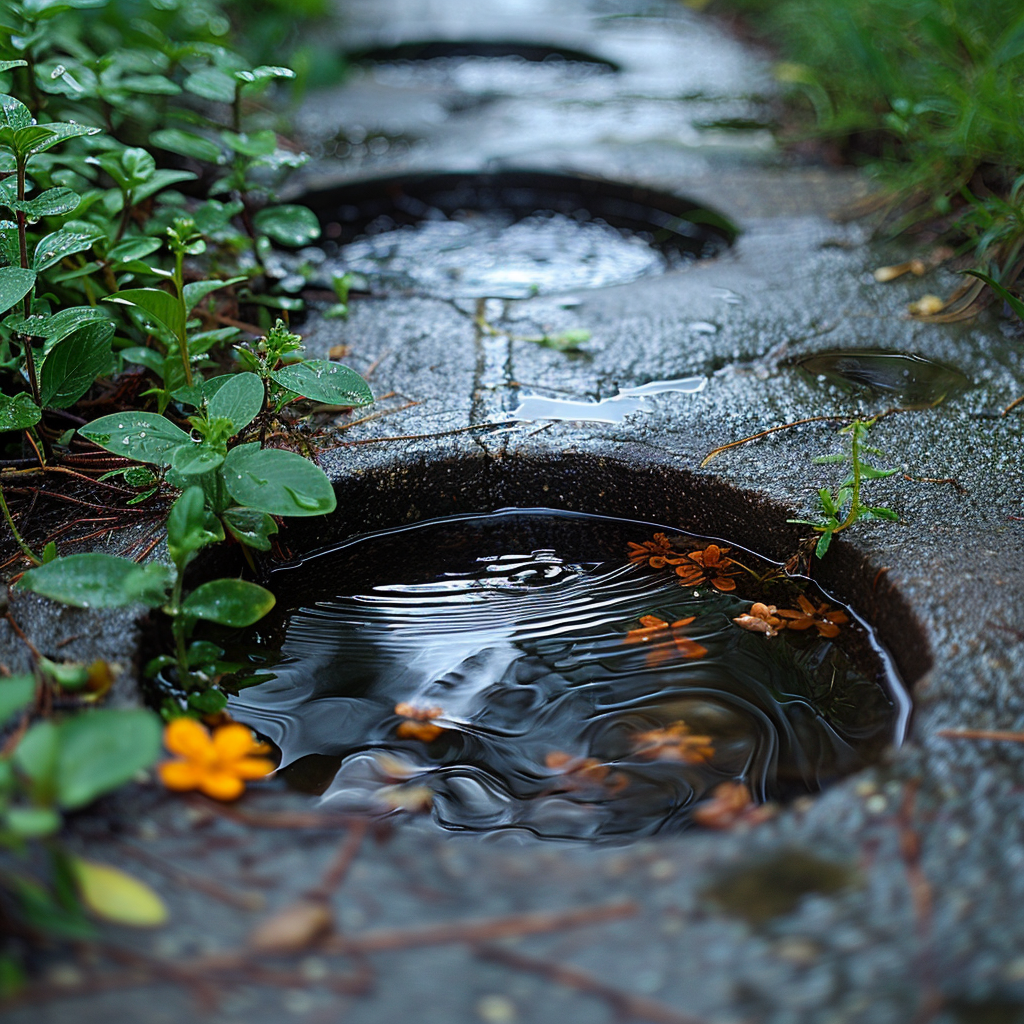
Septic systems often face different problems that can lead to breakdowns or harm the environment if not fixed quickly. A typical problem is when septic tanks get too full because they haven’t been emptied on schedule or too much water is used for the system to handle. Signs of trouble might be foul smells, soggy ground over the drain field, or drains that empty slowly. Knowing how the parts work and taking care of them correctly usually clears up any troubles with septic systems. Checking the system often can catch problems early to stop bigger ones later.
These systems are personal sewage treatment setups for homes without city sewer connections. They handle household waste by sorting it and breaking it down biologically. Basically, a septic system is like having your own small sewage processing facility.
The Biology Inside Septic Tanks
How well a septic tank works depends a lot on the biological activity inside it. When waste arrives in the tank, it bumps into loads of bacteria that begin to decompose it. These tiny life forms are crucial; they digest solid waste into simpler parts. Think of the tank as a big bio-reactor where natural bacteria eat up organic stuff.
Cleaning Wastewater: Bacteria’s Job
Bacteria are the main workers in septic tanks cleaning up waste. Because of what they do, the liquid that flows out of the tank isn’t as bad as when it went in. Lots of healthy bacteria mean less solid stuff in the tank and helps prevents overflowing or clogs. Inside these tanks, ‘good’ bacteria turn waste into water, carbon dioxide, and other basic substances by way of chemical reactions.
What Influences Your Septic Tank’s Performance
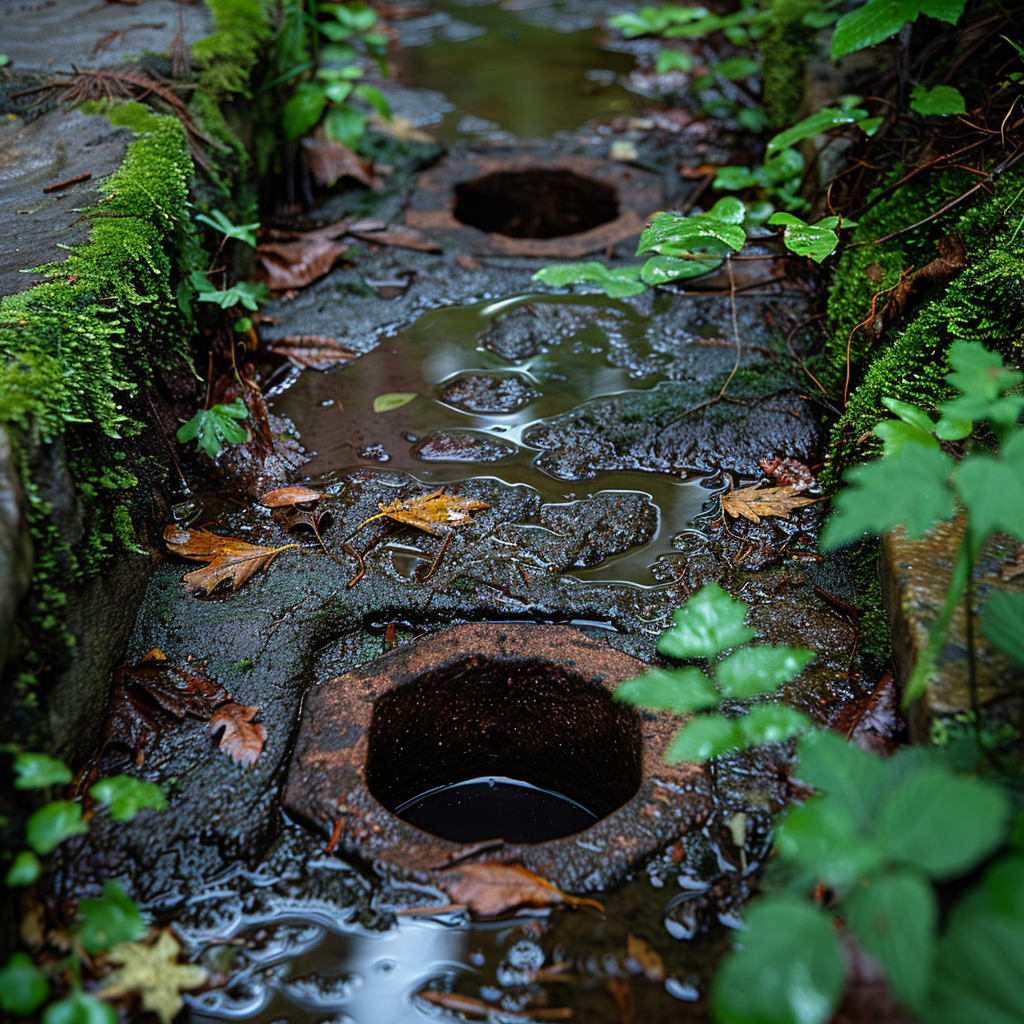
A septic tank’s performance depends on several things:
- The volume of wastewater: too much can overpower the system.
- Waste make-up: some soaps and chemicals can throw off the microbial ecosystem.
- Size of the tank: a smaller tank has to be emptied more often.
- Consistent upkeep: it’s essential for getting rid of stuff that doesn’t break down and to keep the system working.
To keep your septic tank working well, you need to watch these factors. Taking care of your tank and being mindful of what you put in it can prevent overloading and let bacteria do their job. Make sure you’re not asking your tank to handle more than it can, like too much water or things that won’t decompose and can jam it up.
In summary, knowing how your septic tank works and helping it do its job can stop it from overflowing and causing other problems. Paying attention to what affects its efficiency, using good judgement, and performing regular check-ups are key to a durable and functional waste treatment in your house.
Grasping Septic Tank Overflow Problems
It’s key to keep an eye out for septic tank overflow. If your tank gets too full, it can cause big troubles, like harming the environment and making you spend a lot of money on fixes. You should be able to tell when your tank is getting full, use the right tools to check it, and know the difference between normal and too much filling. The trick is to spot and fix the issue fast.
Finding Out If Your Septic Tank Is Full
If your septic tank is about to overflow, a few clear signs can tip you off. Bad smells coming from your drains or the spot where your tank’s buried are a big red flag. Toilets and drains that back up or make weird noises like gurgling can also mean trouble. And don’t ignore wet, mushy soil or puddles near the drain field; those are signs too.
Tools and Techniques for Checking Septic Tank Levels
To figure out how full your septic tank is, you’ve got a few options. You could use something called a ‘sludge judge’, which is a tool made to measure the muck and nasty stuff in septic tanks. Or you might go high-tech with electronic monitors that constantly tell you how much stuff is in there, helping you avoid nasty spills by giving you a heads-up before it’s too late. Still, there’s always old-school hands-on checking, but let a pro handle that – it’s risky business.
Telling Normal From Not-So-Normal Fill Rates
It’s important to know what’s normal for your septic tank when it comes to filling up. The speed at which it fills depends on how many people live in your place, how they use water, and how big your tank is. If you suddenly start using more water or have a leak, those rates won’t be accurate. Keep an eye on how things usually run so you can spot any odd changes. That way, you’ll know if it’s time to cut down on water use or get your system checked out.
In the end, handling a septic tank that’s overfilling isn’t too tough if you stay on top of things. Watch for early warning signs, use the right gadgets to check levels, and be smart about understanding fill rates. And whenever you’re not sure about what’s happening with your septic tank, asking an expert is your best bet.
High Water Use and Its Effect on Septic Systems

If you use more water than normal at home, it can mess with your septic system. All the water from your sinks and showers ends up in the septic tank, which has a set limit for how much it can take. Long showers, using the dishwasher a lot, or a leaky toilet add up to a bunch of extra water. This added water can fill up the septic tank too much, which means trouble could be just around the corner.
Too-Small Septic Tank for Home Needs
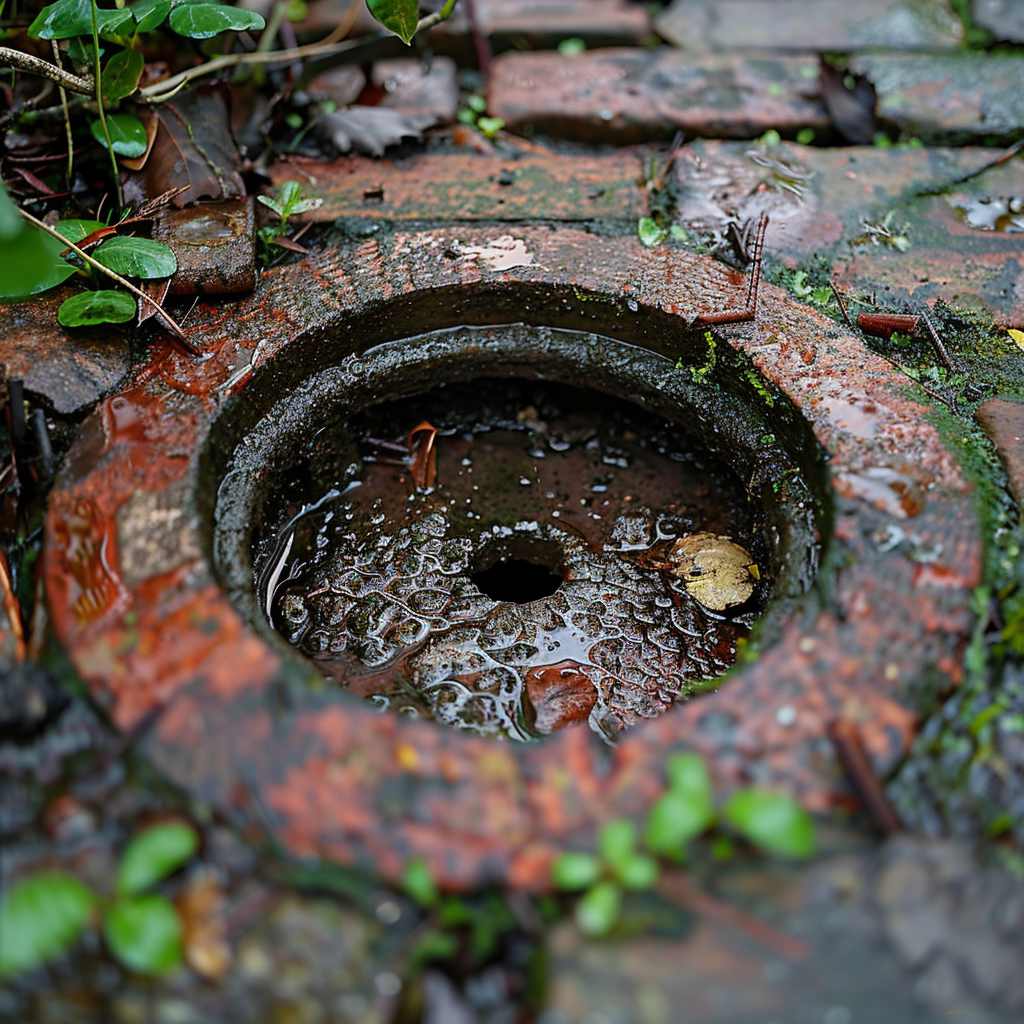
The size of a septic tank must align with the waste a family generates. As a house gets bigger or more people live there, the tank might become inadequate. If it’s undersized, it’ll get full quicker than it should empty into the drainage area. This means you’ll have to pump it out often and risk spillage and blockages if you don’t act fast.
Water Getting Into Septic Tanks from Outside
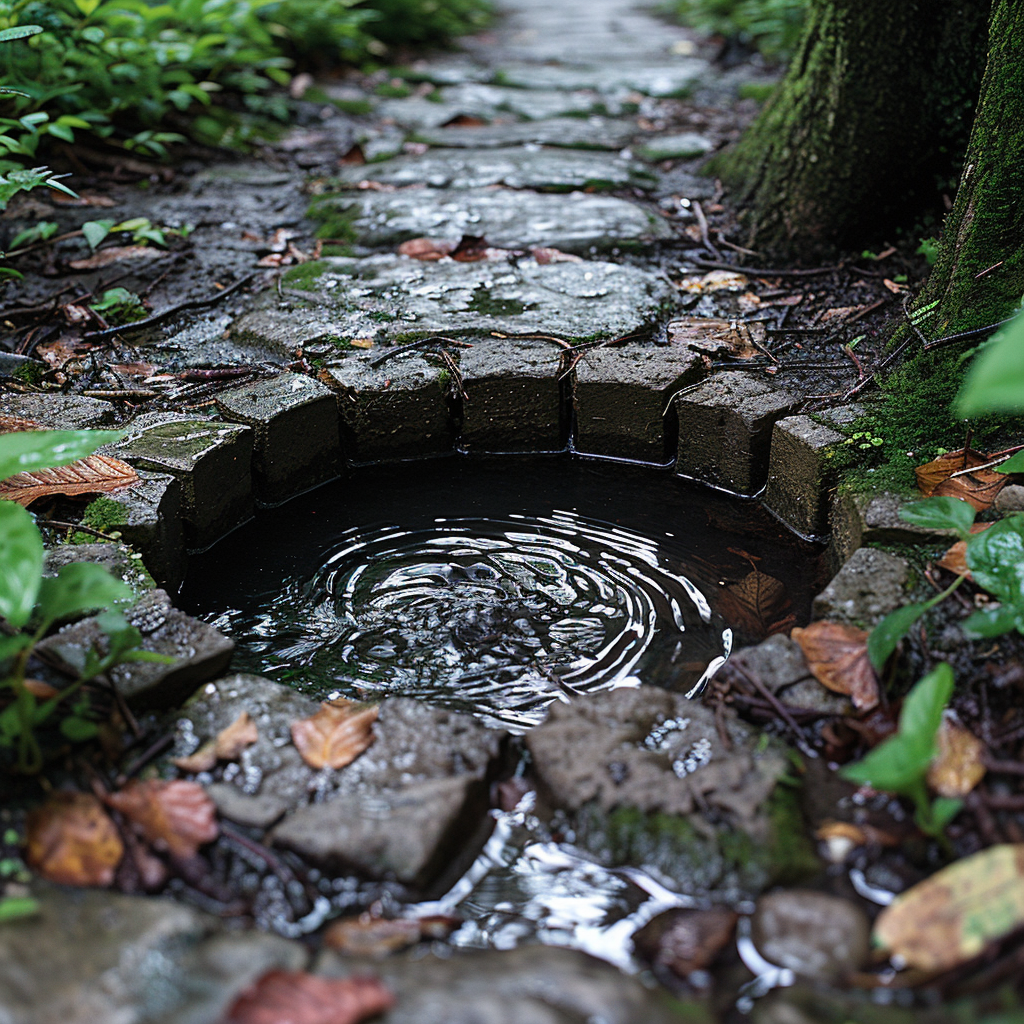
Water from above ground or from the soil can sneak into a septic tank if there are cracks or spots that aren’t properly sealed. When it pours or when floods happen, there’s more water around, which ups the odds of it leaking into the tank. This added water from outside can push the tank over its limit and cause it to overflow. It’s super important to check your tank often and keep it in good shape to stop this from happening.
Common Problems with Septic Tanks
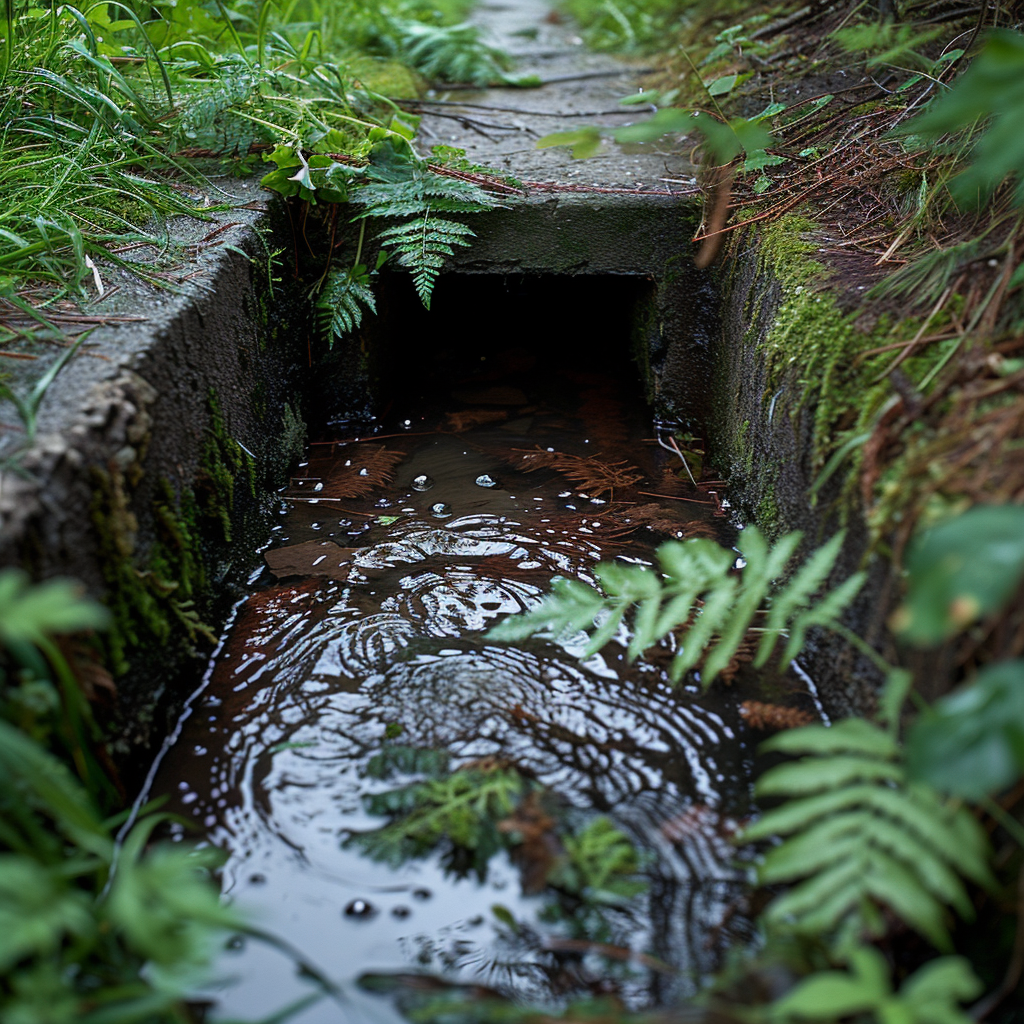
Over time, septic tanks can get damaged. They might crack or get holes because of wear or changes in the earth around them. These issues can cause sewage to get out or groundwater to get in, messing up how well a septic system works. Checking your septic tank often helps you catch and fix these problems early, keeping your system running smoothly.
Non-Biodegradable Waste Can Clog Your System
Septic systems are made for organic waste that bacteria break down. But when stuff like plastic goes into them, it messes up this process. These things pile up since they don’t decompose, block the system, and make it fill up too quickly. They can even stop the tank from separating solids from liquids right, which could lead to big repair bills or having to get a new system.
How Household Cleaners Affect Your Septic Tank
Bacteria that break down waste are key to how well septic tanks work. Sometimes, though, when we use cleaners like bleach, it hurts those bacteria. That means the waste isn’t broken down as fast, so more builds up in the tank, and there’s a greater chance it could overflow, maybe even needing a professional to fix it.
Weather and Seasons Can Impact Your Septic System
The weather and time of year can really change how your septic tank behaves. Lots of rain or melting snow can put extra pressure on the system, causing backups or overflows. And if it’s really dry, the ground gets hard and won’t soak up the waste water properly. So, it’s important to keep an eye on the weather and adjust how you take care of your tank.
I remember to inspect your septic system often and change how you maintain it with the seasons so it keeps working great.
Taking good care of your septic system is key to making sure it lasts a long time. If you don’t do what’s needed, your tank could get too full.
Maintenance is Key for Your Septic Tank
Keeping your septic tank in shape means checking up on it and pumping it out when needed. If you slack off on this, waste builds up inside the tank, it doesn’t work as well, and you might end up with an overflow.
What Happens if You Don’t Pump Your Septic Tank Regularly
If you don’t clean out your septic tank often enough, nasty sludge and scum build up. There’s less room for new waste water, and that can cause overflow, bad smells, polluted water near the surface, and even total system failure.
Be Careful What Goes Down the Drain
Septic tanks are picky about what they can handle. When wrong things like non-bio stuff or harsh chemicals go in, it throws everything off balance. Then stuff doesn’t break down like it should, making clogs and overflows more likely.
Problems in the Drain Field
A big reason septic tanks overfill is issues in the drain field. This part has to filter and spread out the liquid waste. But if it gets blocked or swamped, liquid can’t soak into the ground right and backs up to the tank, making it too full. Things that can jam up a drainfield include too much solid waste, too much water going in at once or a bio-mat—a slimy layer that stops good drainage.
When Parts of Your Septic Tank Break
In a working septic system, thing like pumps and alarms keep waste levels where they should be. But if these parts break down,you might not notice until the tank’s spilling over.
If something isn’t installed right, like if the tank’s too small for your home or if its placed somewhere that just doesnt work well with your environment—problems are bound to pop up later on.
Expert Septic Tank Pumping and Cleaning
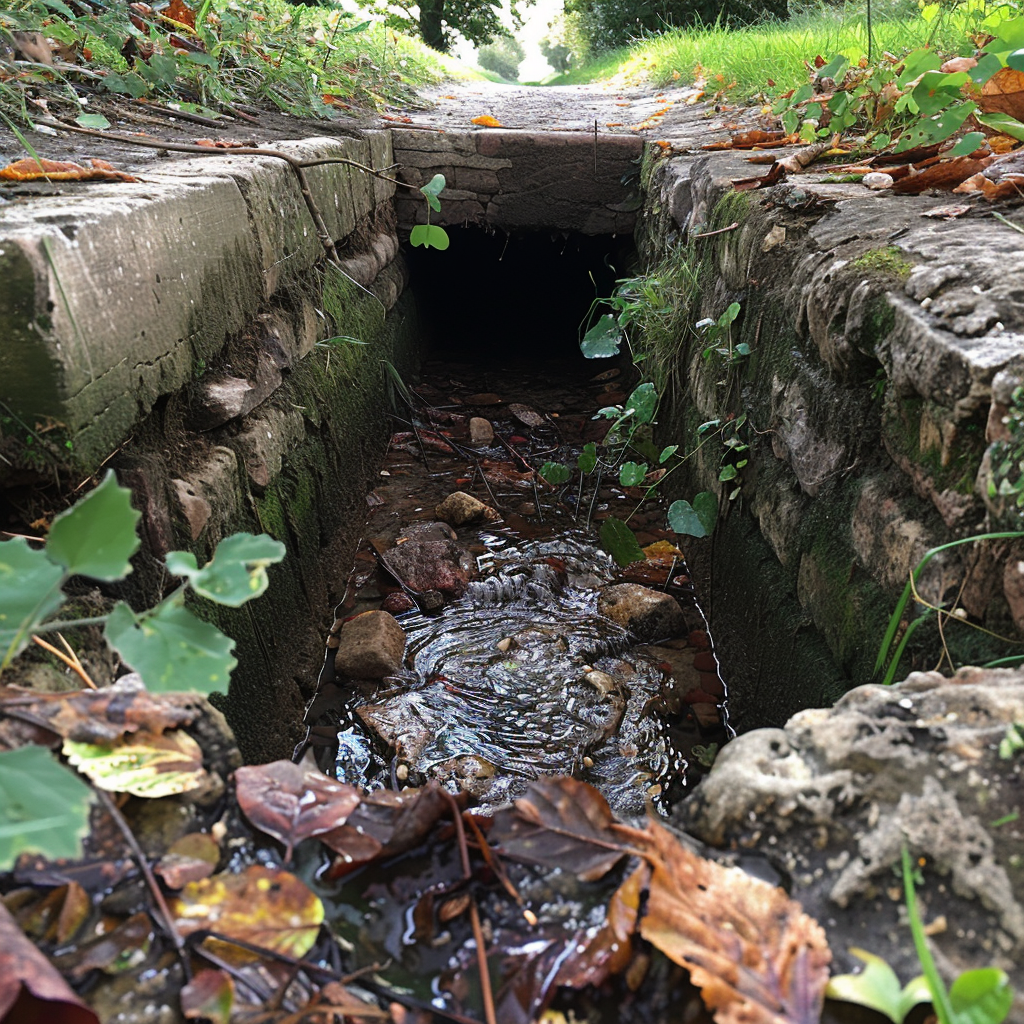
If you got a packed septic tank, the first thing to do is call expert cleaners to pump it out. They know how to get rid of all the gook and gunk that builds up after a while, making sure everything works right. If you keep your tank checked and cleaned now and then, you’ll stop nasty overflows and keep it treating your water like a champ.
Finding and Fixing Leaks, Handling Water Seeping In
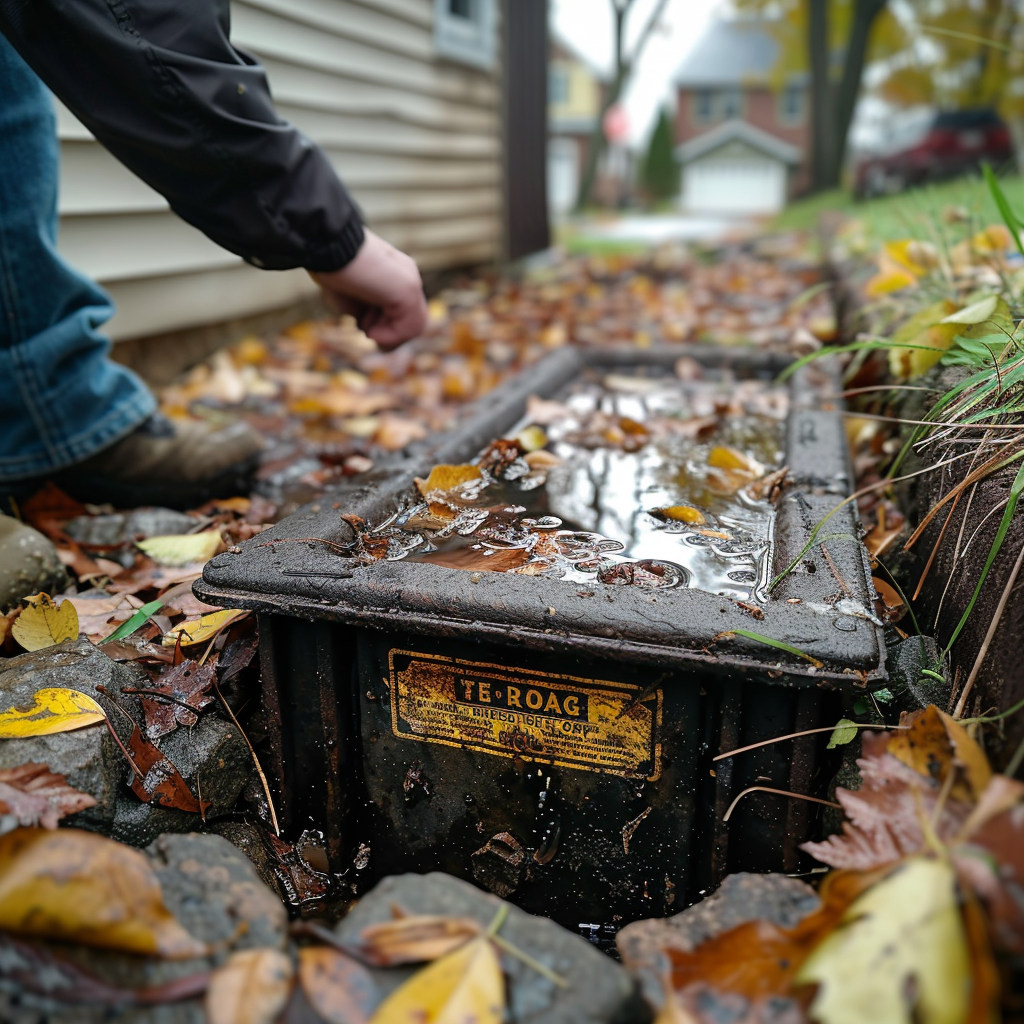
Dealing with septic tank problems means you’ve got to seal up any leaks and keep out water from the soil. When pipes crack or start to leak, too much water can get into the septic tank, filling it up too fast. Patching up these leaks isn’t just about stopping the overflow; it’s also about keeping your whole waste system in good shape. Plus, setting up ways to steer clear of groundwater sneaking into your septic tank stops it from getting full because of extra water coming in.
Boosting Your Septic Tank With Additives
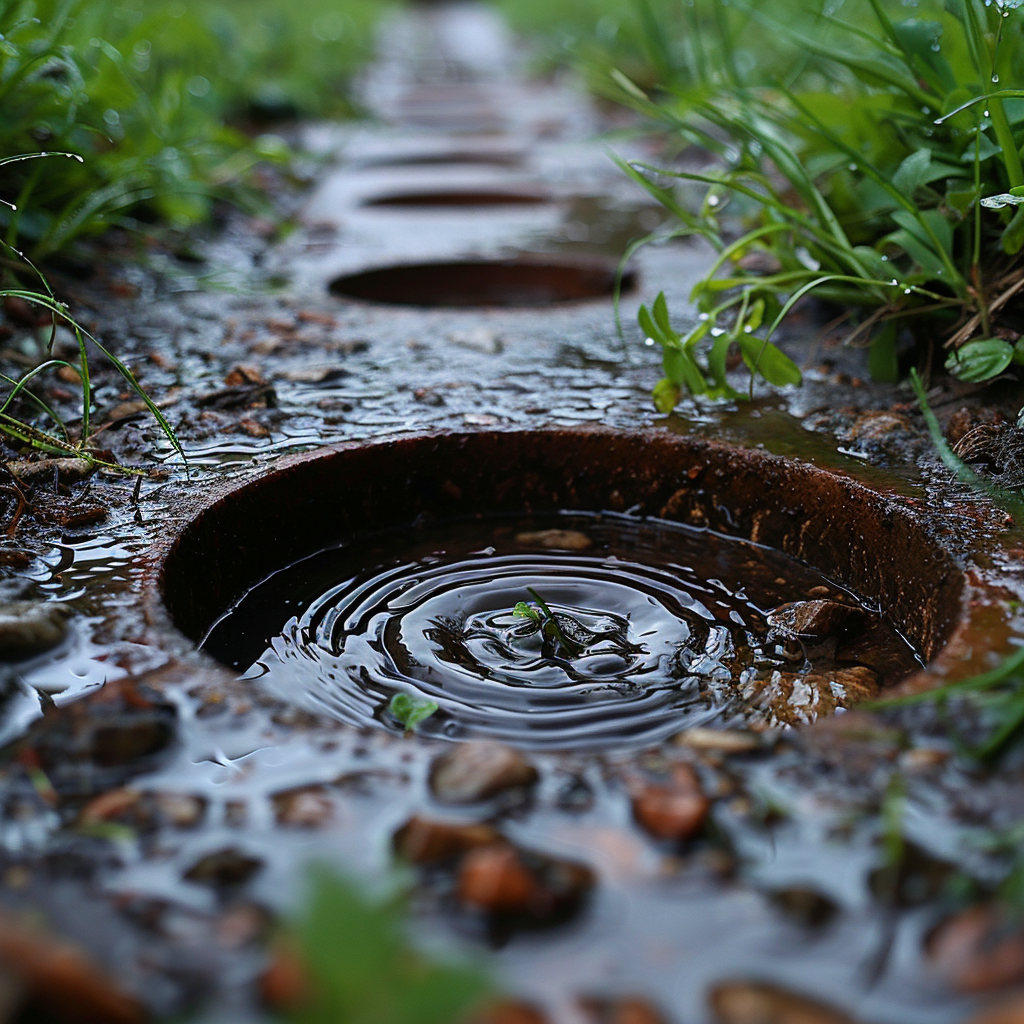
Additives might give your septic tank a leg up by breaking down waste better. This can improve how well your system works. But, be careful – not every additive out there does what it promises. Some can even mess things up if you’re not careful. Always get advice from a pro before you throw anything extra into your septic tank.
Dont’ forget that keeping up with regular check-ups and pump-outs is key to dodging nasty backups. And, if you run into any trouble, call an expert right away so things don’t get worse. A clean and functional septic system is good for your wallet, the planet, and your peace of mind.
Stop Septic Tank Overflow
To keep your septic tank working and stop it from getting too full, you need to really get how it works and take steps to keep things running smoothly. By using smart strategies, you can avoid the all-too-common problem of a septic tank that’s about to burst.
Saving Water to Reduce Septic Tank Load
A key way to keep your septic tank from trouble is to use less water. When you cut down on your water use, your septic system has less to deal with. This means you should fix any dripping taps ASAP, go for faucets and showerheads that don’t use as much water, and choose machines like washers that are stingy with water use. Plus, don’t run your washing machine and dishwasher at the same time; spread out their use during the week to ease up the pressure on your septic system.
Upkeep and Regular Checks for Septic Systems
It’s super important to check your septic system often and keep up with maintenance to make sure it stays in top shape. You should have a look at it every year and get a pro to service it every three to five years—or follow what your local rules say. Doing this helps catch any issues before they get big and keeps all parts of the system, including the tank, drain field, and filters, working right.
Smart Ways to Throw Out Garbage
Knowing what you can and can’t dump is key for keeping your septic system going for a long time. Don’t flush or pour stuff like grease, harsh chemicals, things that won’t break down easily, or too much toilet tissue because these can mess up the balance inside the tank and cause clogs. Stick by these rules to help keep your tank from getting too full and heading for disaster.
All in all, being careful about saving water, sticking to maintenance checks, and knowing the dos and don’ts of getting rid of trash is important if you want to avoid your septic tank from getting too full. This doesn’t just help your home handle waste better but also looks out for the environment.
Understanding Your Area’s Septic System Rules
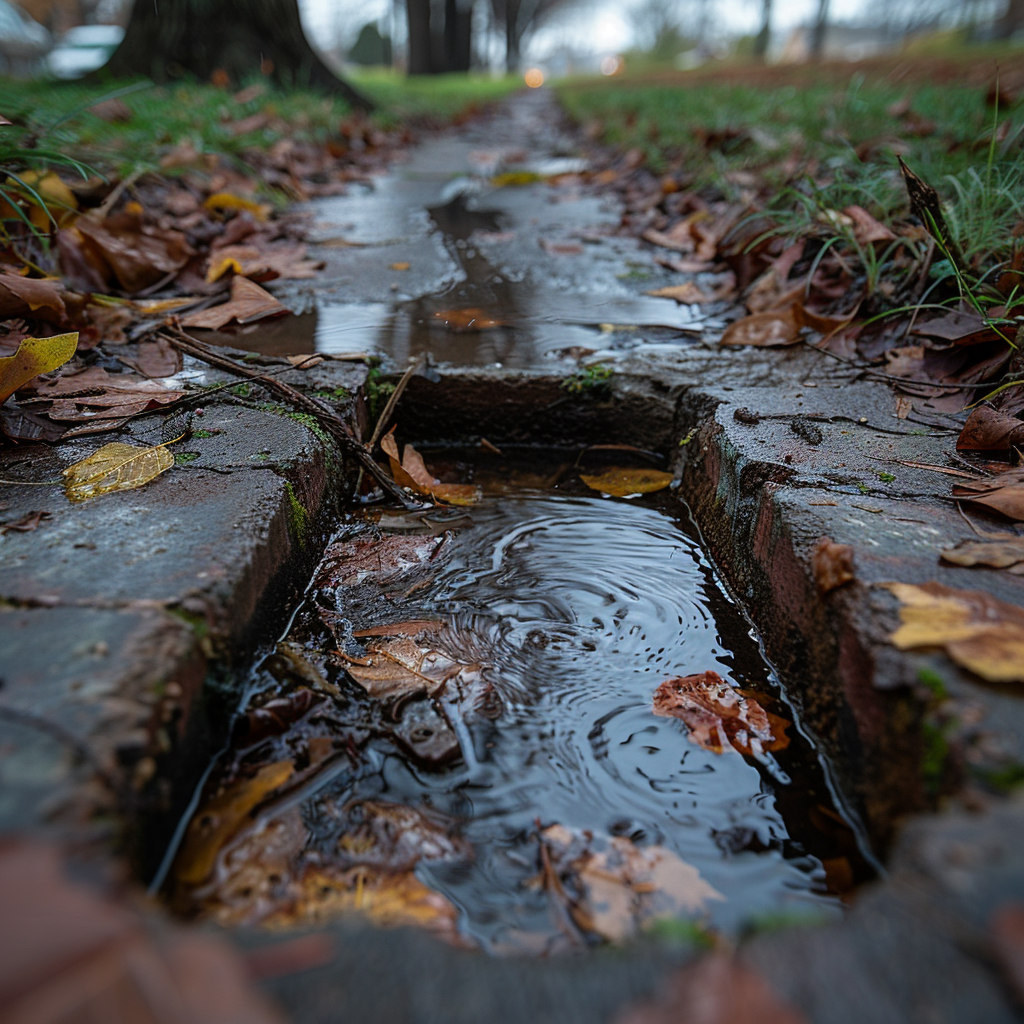
It’s really important to get the hang of the septic system laws where you live. They’re not the same everywhere, so you gotta know what’s what in your own backyard. These rules usually cover how to put in a new system, how to keep it running right, and what it should look like to make sure it works safely. Stick to these rules to stay out of trouble and keep your septic system up and running smoothly.
Effects of Broken Septic Systems on the Environment
When septic systems break down, they release dangerous pollutants into the environment. This can badly affect different ecosystems. Too many nutrients in lakes and rivers from septic system leaks can cause destructive algae to grow. This is bad for fish and other water creatures and makes the water quality worse. Also, when septic tanks overflow, disease-causing germs can become a big threat to people’s health.
Understanding How Governments and Communities Manage Septic Systems
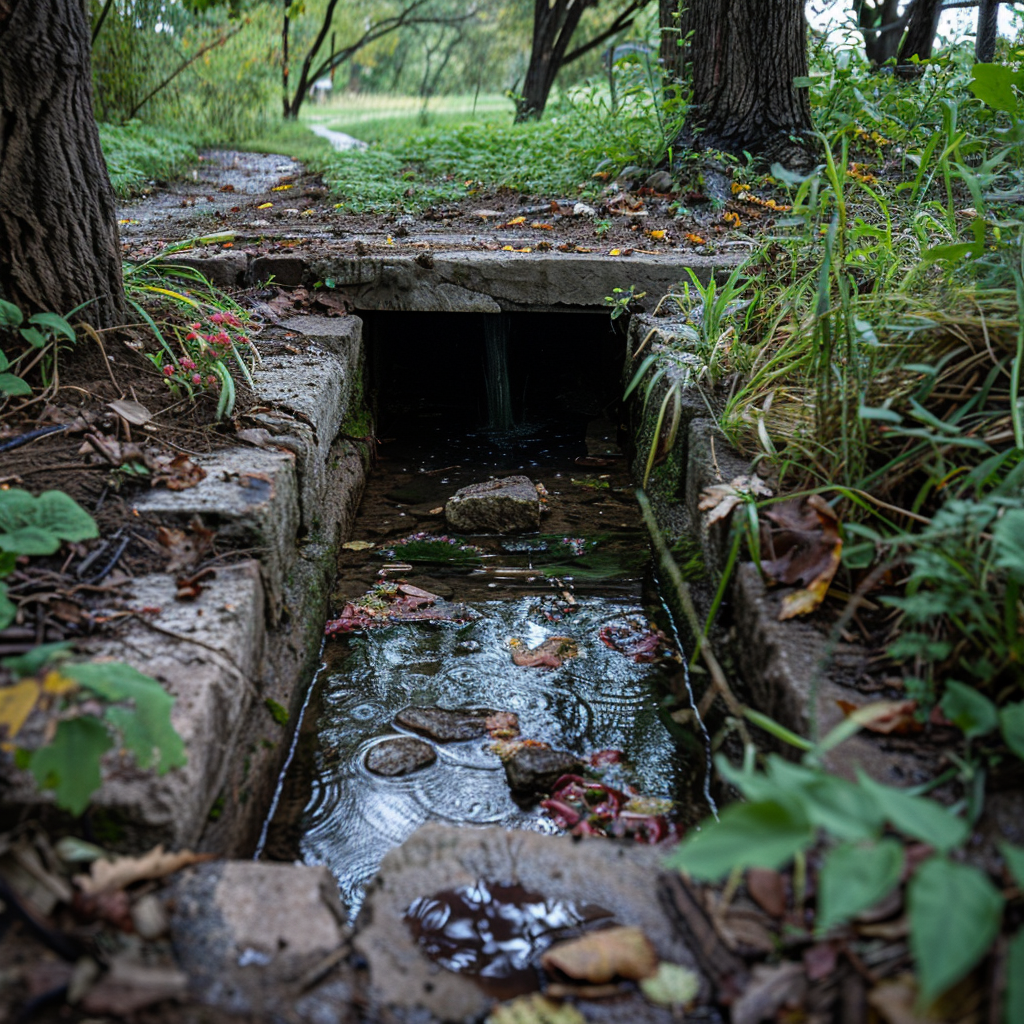
Government bodies and local communities are key players in septic system regulation. It’s crucial for government entities to set solid rules and make sure people follow them to avoid harming the environment. Residents can help by taking care of their septic systems and fixing problems fast. When governments keep an eye on things and locals do their part, septic systems are well-maintained, and the danger of them getting too full is reduced.
Dealing With a Full Septic Tank
Septic tanks are crucial for waste management in many out-of-town homes, but they can overflow if not used right or if they don’t get enough care.
Examples of Septic Tank Issues
In the real world, septic tanks mess up mainly when they’re too full, not set up correctly, or not checked and cleaned enough. A Midwest rural area had their whole septic system mess up because everyone used lots of water at the same time, which caused pollution. In a seaside spot, a septic tank broke down faster because salty air made metal parts rust.
Why Septic Systems Fail and How to Fix Them
Blocked drain fields, putting too much water down the drain, or not removing solids often enough are the main reasons septic systems go wrong. You’ve got to keep them in check regularly, use less water, and only flush things that break down easily. Upgrading old systems with new tech is another smart move.
Smart Ways to Keep Your Septic System Running Smooth
To avoid trouble, checking your septic tank often and pumping it when needed is key. Teaching people not to flush hard stuff down the loo and to save water is super important too. This one place where people really stuck to the rules had way fewer problems with their septic tanks, proving that it’s best to stay on top of things.
New Ideas for Long-Lasting Septic Systems
Cutting-edge stuff like biofilters and man-made wetlands can help septic systems last longer and work better. Some of the newest treatment methods can handle more waste and break it down faster using extra oxygen, which is a big deal for keeping things clean.
Getting to Grips with Septic Tank Overflow
If your septic tank’s too full, you’ll run into issues like foul smells, slow-moving drains, and even sewage backflow. This usually happens when the tank’s too full or there’s a glitch in the parts that manage water levels. Pinpointing the problem is key to fixing it.
The Lowdown on Septic System Parts
The back pages of a septic system guide are jam-packed with info on every part. These sections break down what each bit does – from the tank to the pipes leading in and out, across the field where it drains, and all the extra bits like pumps or alarms that might be there. Knowing about these parts is super handy for tackling overflow troubles.
Glossary of Septic System Terminology
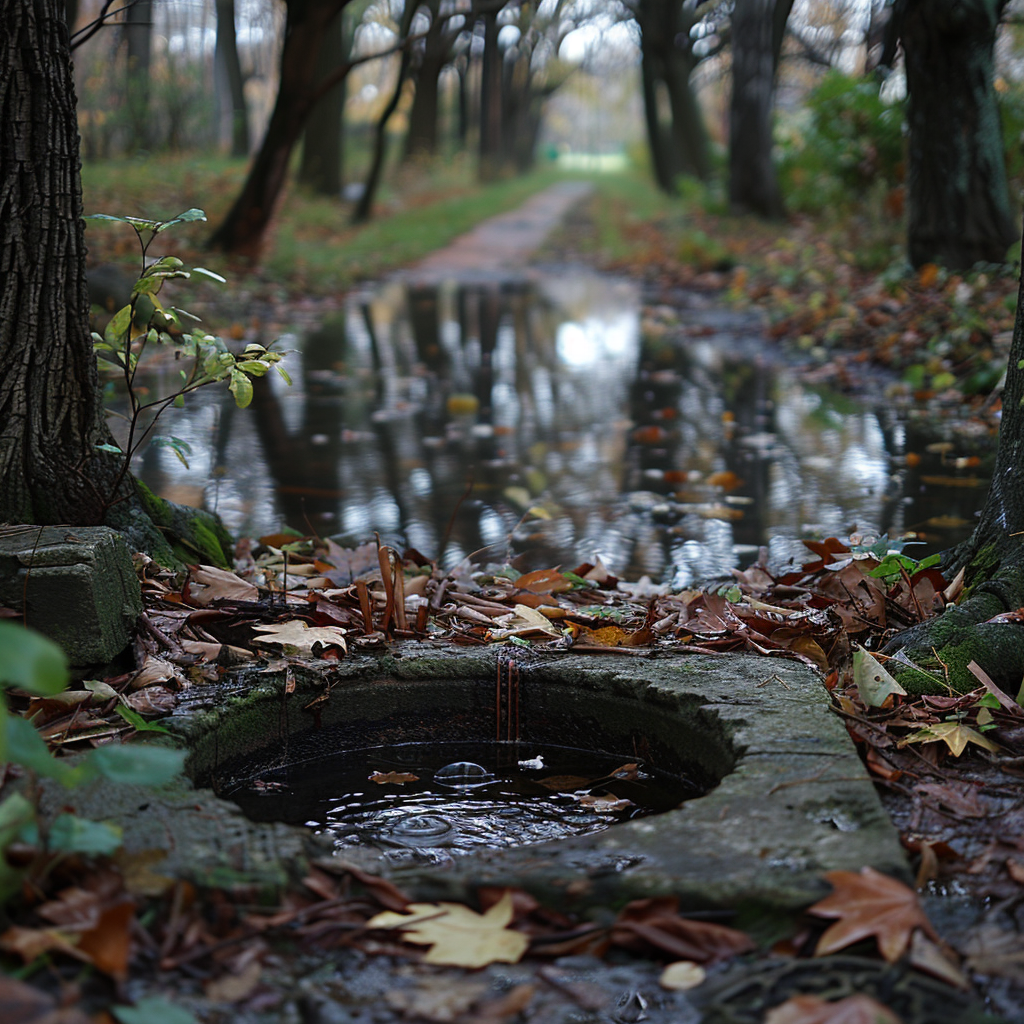
Having a full glossary is handy for homeowners to get to know words like effluent, biomat, and scum layer. These are terms often thrown around when talking about how septic systems work and how to keep them running right. Knowing these terms can help you make sense of service reports and talk more easily with experts.
Resources for Septic System Maintenance and Repair
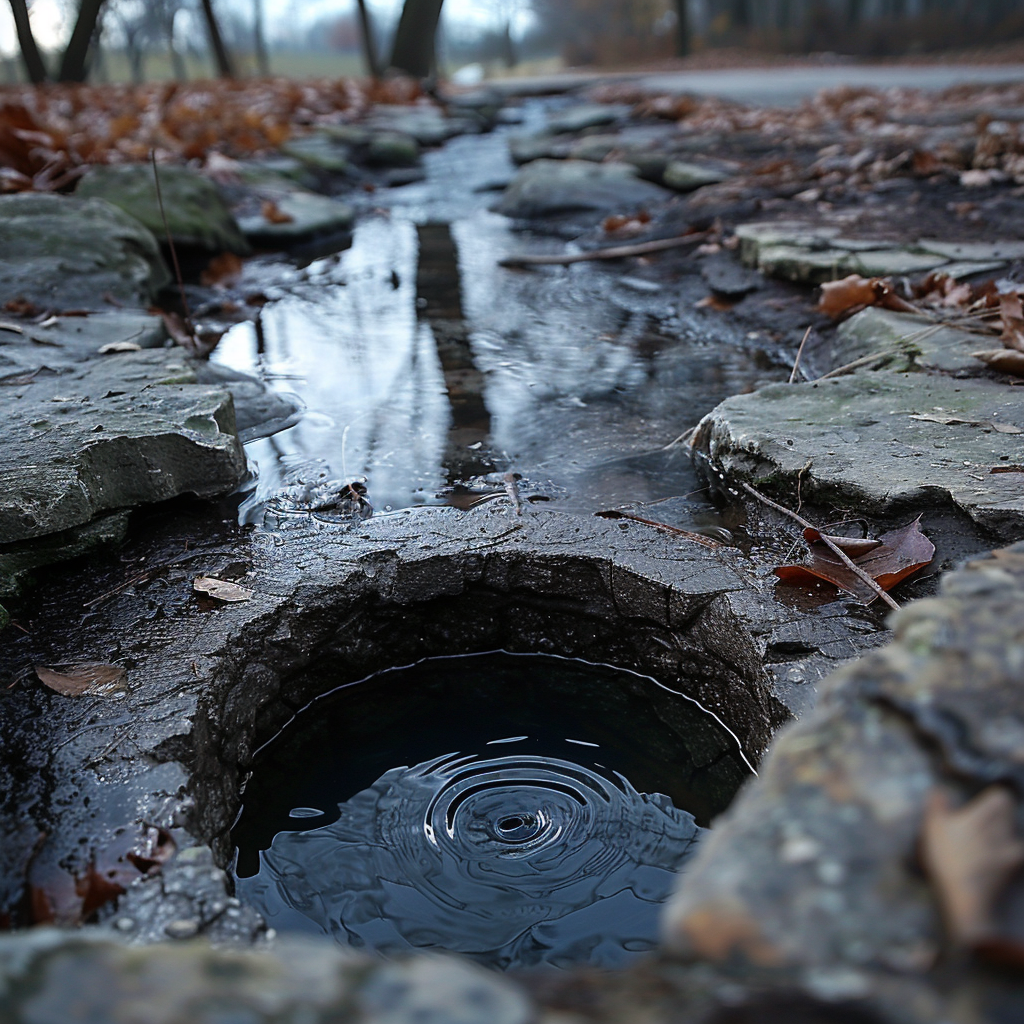
Having the right tools for septic system care is essential. This means you need easy-to-follow maintenance guides, step-by-step troubleshooting for typical problems, and a list of nearby septic service companies. Moreover, online platforms provide tips on keeping your system in top shape, which helps it last longer and prevents messy overflows.
Checklists for Routine Septic System Evaluations

Regular checks are crucial to stop your septic system from getting too full. Checklists are handy for making sure you look at every part of the system often. You’d have items on the list like checking how much sludge and scum’s in the tank, seeing if the baffles are in good shape, confirming that any pumps work fine, and looking out for leaks in the drain field.
Understanding Septic Tank Overfilling
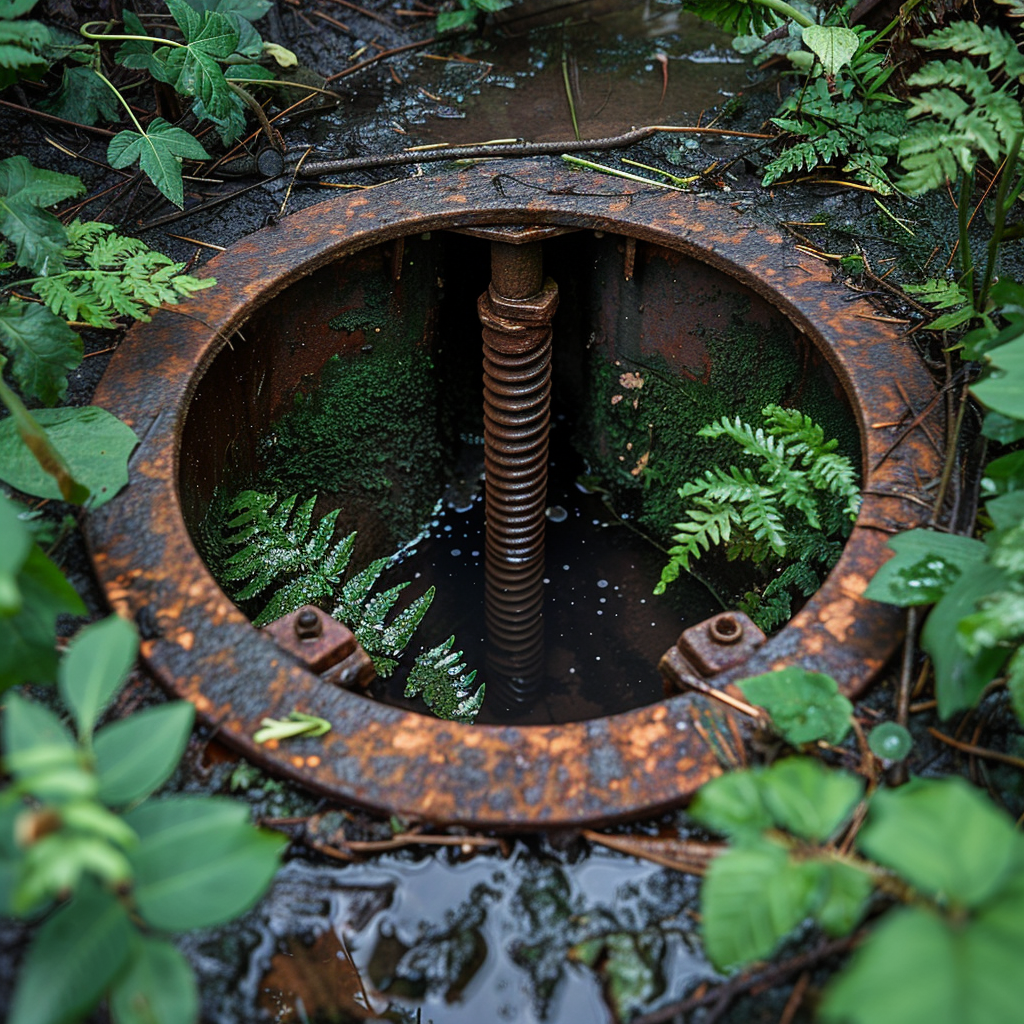
When a septic tank overfills, it’s usually because people are using too much water or they’re not taking care of the tank properly. It’s important to know why this happens so you can fix it. Experts have studied these septic systems closely, and they’ve learned a lot. They tell us that if you use a lot of water at home, your septic tank might not be able to handle it. They also talk about the tiny organisms inside the tank that break down waste. If something messes with this process, the tank can get too full.
Issue Resolution Measures
If your tank’s getting too full, try a few things to fix it. Cut down on how much water you use, that’ll help right away. Make sure there aren’t any leaks, and don’t do all your water-heavy chores at once – spread ’em out. Also, get someone who knows what they’re doing to pump out your tank on the regular. And one more tip: don’t chuck stuff that won’t break down into your sink or toilet, cuz that can jam things up and cause an overflow.
More Info and Next Steps
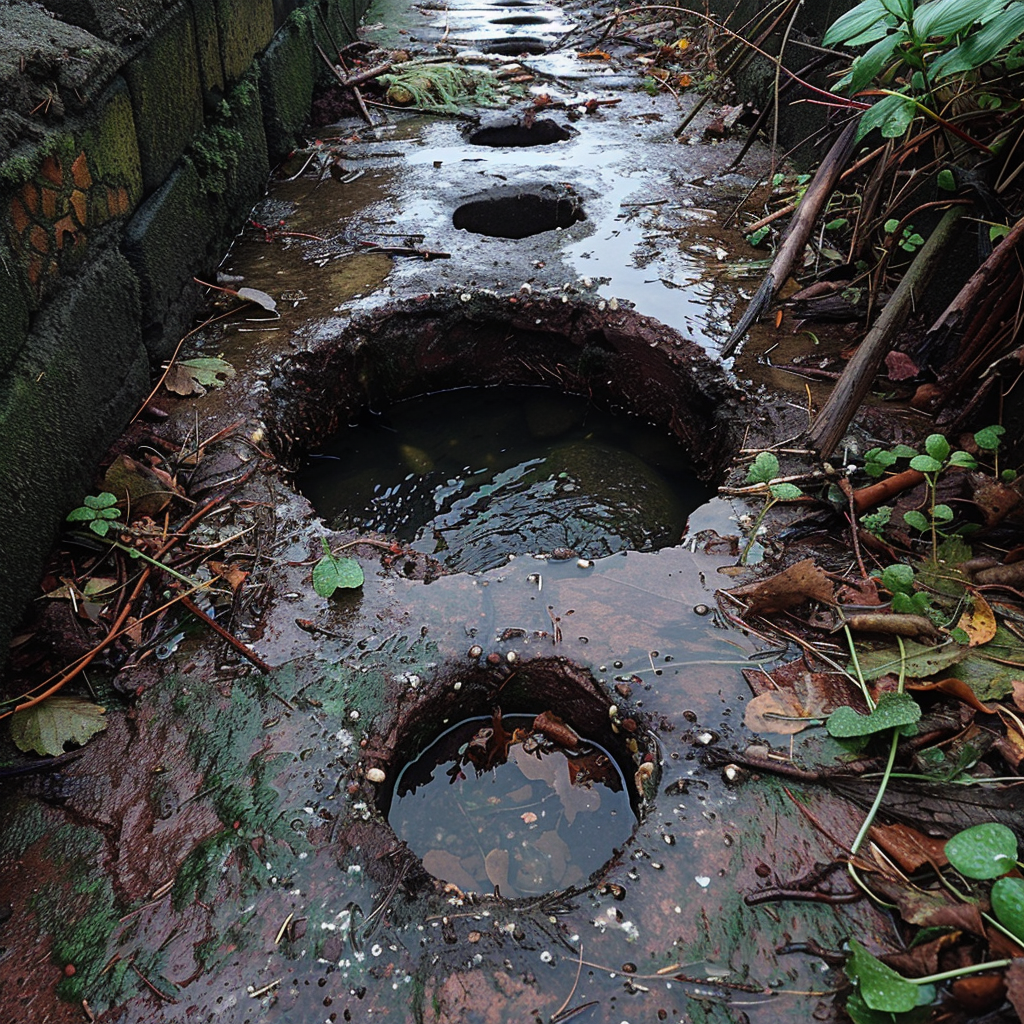
If you’re looking to really wrap your head around this, check out what the government’s environment agencies have put out. They’ve got some solid guides on how often to check your system and how not to push it too hard. Stuff like a homeowner’s guide to septic systems can be super helpful, with handy tips and fixes that the official folks approve of.
Wanna dig deeper? Give books like the “Septic System Owner’s Manual” a read, or get into some of the detailed studies in magazines like “Water Environment Research.” You’ll find everything from how these systems are built to how you keep them running smooth—all coming from trusted sources.

I’m Tim Robberts, a seasoned wastewater treatment & septic system expert with over 40 years of experience in the field. My career began as a septic tank installer, and I quickly gained a reputation for my attention to detail and commitment to excellence. Over the years, I’ve honed my skills in designing, installing, and maintaining septic systems for residential and commercial properties.
